- Home
- James Newman
Animosity Page 3
Animosity Read online
Page 3
I was afraid.
Not in the way my favorite horror movies had filled me with harmless thrills when I was a kid. No, this was true fear. I realized I did not want to go any further. I did not want to see what had upset Norman so.
Because somehow I knew—already—that what we were about to find on the lot would be bad. Very bad.
I tugged on Norman’s leash. “Come on, boy. Let’s go. We’re not supposed to be here anyway…”
He didn’t seem to hear me. Still growling, he stalked across the construction site, toward the rear of the property, where a thin copse of trees separated our neighborhood from Harris City Park on the next street over.
“Norman? What the hell is wrong with you? What do you see?”
His growl cut short. He stood there, stiffly, staring at something across the lot. His nostrils flared.
“Norman.”
He glanced back at me, let out a little whine. His tail went limp, dangled between his legs as he took two tentative steps forward. Then he looked back at me again. Barked once. This time his bark was directed my way, but it wasn’t a threatening sound. It was a yelp of concern. A warning… as if he did not want me to come any closer.
I peered off toward the rear of the lot, holding one hand to my brow to shield my eyes from the sun. “Norman—”
And then I saw it. Up ahead. In the shadows of those trees…
Norman’s leash dropped from my hand.
A cool breeze swirled about the property. Off to my left, a gold candy bar wrapper twitched and danced across the dirt like something dying. Where scant minutes ago I had wiped sweat from my forehead, I shivered now. I felt the icy prickle of goosebumps rising on my forearms.
From somewhere far away, I could still hear Norman whining. It was a pitiful, hopeless sound.
“Norman,” I said. “S-stay. Stay right there.”
My knees grew weak. Still… somehow… I staggered forward. Toward the pale, crooked thing lying in the far corner of the construction site.
The world seemed to drop out from under me when I saw her sprawled there, in a big pile of sand behind a rusty cement mixer.
I covered my mouth with one hand. Salty tears blurred the awful sight before me, but they weren’t enough. Dear God, they would never be enough to make this go away…
“Oh, Jesus,” I said. “Jesus… ”
She was naked. Dead.
She could have been no older than nine or ten.
It was obvious from the unnatural angle of her head that her neck had been broken. A wormy rivulet of bright red blood ran from one nostril down to her chin, like an ugly crack in the face of an otherwise perfect porcelain doll.
Something else trickled out of her, too. Something thick and milky.
Down there.
Overhead, a bird chirped in the treetops. It was a maddening sound, a midsummer song far too merry for the scene at hand. From the Tomblins’ yard next door came the staccato chattering of an automatic water pistol, accompanied by a woman’s shrill laughter and pretend pleas for mercy. From further down the block: the high-pitched giggle of a toddler, in time with the metallic squeak-sigh-squeak-sigh of a backyard swing-set.
Meanwhile, my pulse banged in my temple like a tympani drum, louder than everything else.
Norman brushed against me. I flinched. Swayed. My breath burst out of me in a sick wheeze.
“Norman—”
The retriever’s eyes were sad, watery, as he crept toward the dead girl.
“Norman, no… d-don’t—”
He started licking her left foot.
I turned, vomited into a pile of discarded two-by-fours, and I didn’t stop making that same high-pitched whining noise my dog had been making minutes ago until I was all the way home, clamoring up the steps of my front porch, stumbling for the phone.
CHAPTER FOUR
In the prologue to my fifth novel, A Cold, Dark Place, a man finds the mutilated corpse of a little Asian boy shoved into a culvert behind his place of business as he closes up shop on Christmas Eve. Though he did not know the child, I remember describing the character’s terror as “a devastating sense of loss.” In that boy’s glazed, lifeless eyes, the man saw the inevitable mortality of his own small children. He recognized the depths of evil to which humans are capable of descending, and with his discovery came “an awful, black knowledge” that no one is ever truly safe. Not even the innocent.
I felt an inexplicable sense of déjà vu as I sat there in my living room, tormented by what I had found that morning. As if I had personally experienced all of this before. And I felt regret. A smothering depression like I had somehow brought this upon myself, as if I had created the events of this day by penning something similar eleven years before.
I shuddered. I kept seeing that little girl’s tiny white face. Her fixed gray pupils staring through me into eternity. Over and over and over again, replaying in my mind like a clip from some misogynistic film I had watched in spite of my better judgment and now prayed I could forget…
Two hours had passed since I found her, and still I heard the obscene rasp of my golden retriever’s coarse tongue lapping across the soft, dead flesh of her heel.
“Samantha,” I wept. “Oh, Sam… ”
Not since the day she was born had I so desperately wanted to hold my own daughter, to hug her and squeeze her and promise her I would never let go. I cursed myself for postponing our weekend together, for worrying about some stupid book when I should have savored every precious second I was allowed to spend with her. Guilt gnawed at my soul with hateful, razor-sharp fangs, but at the same time I found myself burning up inside with a primal, white-hot rage. No one would ever put his hands on my Samantha like someone had put his filthy hands on that poor child at the Clinton property…
Sweet Jesus, who could do such a thing?
I ran one trembling hand through my sweat-stiff hair, made a sound somewhere between a furious growl and a tortured moan.
In my right ear then, a deep male voice: “Sir?”
I could barely stop myself from lashing out at the faces looming over me. For the last few minutes, I had almost forgotten that I was not alone.
“Whoa. Easy there. You sure you’re gonna be okay, Mr. Holland?”
I took a deep breath. Forced myself to calm down and deal with the task at hand.
“Yeah,” I said. “I think so.” My voice was hoarse. “I don’t know.”
“Can we get you a glass of water? Maybe even something stronger, if you’d like to show us where you keep it?”
“N-no. Water. Please. Water sounds good. Thank you.”
I sat on my sofa, chewing on my bottom lip, my right knee bouncing up and down nervously. The two men who had been talking to me for the past hour or so were Detectives Erik Norton and Paul Hembry. Detective Norton was tall, thin, a couple years younger than myself. His ebony hair was unkempt; it belied his otherwise professional appearance, as if he had been too busy fighting crime all morning to worry about something so trivial as running a comb through his hair. He wore a navy blue blazer over a light gray shirt and black jeans. Shiny gold badge clipped to his belt, the bulge of a gun under one arm. His partner, Paul Hembry, was an overweight, balding gentleman who barely stood as tall as my chest. Hembry sported multiple chins and dark bags under his eyes that gave him the appearance of a tired old bulldog. He wore a rumpled blue Polo shirt, khaki slacks, and enough cologne to drown a small army. Every few minutes he dabbed at his sweaty forehead with a yellow handkerchief plucked from his back pocket.
Also on the premises lurked a fellow by the name of Officer Keith Whitmire. Whitmire stood watch on the other side of my front door while his superiors handled their business inside with me. Every few minutes I heard his footsteps on the porch, saw his wide shoulders pass by the window as he paced back and forth out there. Not only had he been the first officer on the scene, Whitmire was a neighbor of mine. He lived in the Spanish-style bungalow at the end of the cul-de-sac. Though I'd never
gotten to know him very well, I had heard he worked in law enforcement simply because he enjoyed it, to maintain familial tradition as a fourth-generation police officer, and not out of necessity. Supposedly he had won a hefty chunk of change in the Georgia State Lottery several years ago, and now he was set for life. I always thought Whitmire looked just like Pete Rose, the shamed baseball player.
Someone coughed gently, startling me from my reverie. It might have been me. I wasn’t sure.
“Can I, uh, get that glass of water now?” I asked the two men before me.
“Sure,” said Detective Norton. Without taking his eyes off of me, he told his partner, “Get him a glass of water.”
Detective Hembry nodded my way before waddling down the hall and into my kitchen. He returned a minute or two later with one of my daughter’s favorite drinking glasses, a pink one with Minnie Mouse and Daisy Duck on the side.
Ice cubes chattered against the sides of the glass as he handed it to me. I took a sip, winced. The water tasted thick and nasty in my mouth. Like something gone bad.
Norton crossed his arms, cleared his throat. Watched my every move. The look on his face suggested I was making him late for an important appointment.
I set the glass on a shelf beside the sofa, gazed up at him.
“Her name was Rebecca Faye Lanning,” Norton announced. As if he’d been waiting for the perfect moment to fill me in, and this was it. I wondered what kind of reaction he was searching for, and if mine satisfied him. “She was nine years old.”
“God,” I said.
Hembry added, “We figure you scared the perp off. You and your dog.”
For the next minute or so, the only sound between us was the tingle and ping of the wind chimes swaying back and forth on my front porch. Their high yet mournful song came to us through my open living room window like memories of better times borne on a warm summer breeze.
“I assume you haven’t found him yet,” I said.
“We haven’t,” Norton replied. “Yet.”
“Our K-9 units plan to comb the park all evening,” said Hembry. “You had him cornered. Nowhere else he could have gone, except through the woods.”
“Right,” I said.
“Did you know the child?” Norton asked me.
“No.”
The detectives glanced at one another, but said nothing.
“Her family,” I said. “Do they live around here?”
My extremities felt oddly numb. My voice seemed to come from someone else, from hundreds of miles away.
Hembry nodded. “Tamarack Circle, next street over.”
“Jesus Christ,” I said. “I can’t imagine what they’re going through right now.”
“No one can,” said Norton.
For the first time I noticed how the taller detective’s otherwise perfectly trimmed eyebrows met in the middle. One hard, black line above his hard, black eyes. In my novels, such a trait would have been a telltale sign that Norton was a werewolf. A man who turned into a monster by the light of the full moon.
But this was real life. This wasn’t fiction. A human monster walked among us in broad daylight.
“We’ll get him,” said Hembry. “I promise you that. Maybe not today. It might not even be a month from now. But we will get the son of a bitch.”
“I hope so,” I said.
“If it’s the last thing we do,” said Norton.
I took a few more long, loud swallows from my glass of water. The way Norton kept staring at me made me uncomfortable. As if he were running some sort of sci-fi mind-scan on me in hopes of unveiling every deep, dark secret lurking within my past.
Sorry to disappoint you, I was tempted to tell the guy, but I’m about as boring as they come.
Then again, perhaps not.
Because I suddenly realized what was on Detective Norton’s mind, a split-second before his next words fell from between his lips. I knew what those glances they kept giving one another were all about, and why the detectives lingered in my living room, talking to yours truly when I was so sure they could have been doing more good out there on the streets searching for Rebecca Lanning’s killer. There was a bit of unfinished business here, as far as Detectives Norton and Hembry were concerned. Questions yet unanswered…
When I realized this, I felt cold. Like something inside of me had died.
“Mr. Holland,” Norton said, “please understand that this is standard procedure. It may seem irrelevant to you in regards to what has happened here today, but I must ask you to clarify a few things before we go any further with this investigation.”
I nodded. Shifted uncomfortably in my seat. Waited for it.
“On February 18, ——, you were charged with statutory rape. Is that correct?”
“That’s… correct,” I said, staring down at my lap.
“Mr. Holland? I didn’t hear you.”
“It’s true,” I said, louder this time. I gnashed my teeth, fought to keep my rising anger in check. “It’s… yeah, that’s right.”
“And you were convicted?”
“I pled guilty.”
But you already knew that, so why the hell are you asking? I wanted to scream at him.
The detectives glanced at one another for what felt like the ten-millionth time. Then they returned their attention to me.
“Would you care to tell us what happened?” Norton said, pulling a small notepad and ballpoint pen from inside his suit-coat.
“Is that really necessary?” I said. “I mean, I don’t see how this has anything to do with—”
“Please, Mr. Holland,” Detective Hembry interrupted me. He held up one hand, in a placating gesture. “As my partner said, this is standard procedure. We’re just talking here. But I think it would be best for all of us if you explain what happened in your own words. Otherwise, we have nothing to go on but court records. We would really like to hear your side of the story, sir.”
I shook my head, sighed. “It was… a stupid mistake I made when I was young. That’s all. I was a dumb kid. I screwed up. But then I took my punishment like a man. There’s nothing more to tell.”
Norton scribbled something in his notepad, but said nothing.
“I’ve never been in any kind of trouble with the law, before or since,” I explained. And then I insisted again, “I was young. It was a stupid mistake.”
“Duly noted,” Norton mumbled.
“I should have known this would come up sooner or later.”
“Tell us what happened, Mr. Holland,” said Detective Hembry. “Please.”
And so I did. I left out nothing. I told them about a ravishing young lady named Bridget Prescott… about that fateful Valentine’s Day years ago when I ended up in the hospital, my body broken and bruised… about my brush with the law when I was twenty years old, and the price I had paid for thinking I knew all of life’s answers when I was barely old enough to understand its questions in the first place. It wasn’t easy, being forced to revisit this part of my past I had tried to bury, but I had no choice. Halfway through my story, I decided it was for the best. If either of these men thought for a second that I was hiding anything from them—anything—they would cease to believe a word I said.
When I finished, Detective Norton slid his pad and pen back into his jacket, said, “Okay, then. Thank you for clearing that up.”
“Is this going to be a problem?” I asked him. “I think I have a right to know if y—”
“Nah,” said Hembry.
“It shouldn’t be,” said Norton.
Outside, on the porch, I heard Officer Whitmire say something. I could not make out his words or see to whom he was speaking. A radio squawked briefly, and that was followed by another quick murmur of conversation. The policeman’s footsteps clunked from one side of the porch to the other, then back again.
I wondered if he had been eavesdropping on my story through the open window.
Detective Hembry, meanwhile, had wandered out of my living room, into the hallway.
He stood outside my office now, his hands jingling change in his pockets as he peered into the room. Beyond his considerable belly I could see the bookshelves housing all of my first and foreign editions along one wall, and a framed poster of the cover art for my last novel, Slow Burn (my biggest seller to date), centered above my desk. To the right of that was the window through which I peered, daydreaming, each time I came down with a bad case of procrastination disguised as writer’s block. The screensaver on my computer monitor was a montage of old black-and-white Marilyn Monroe photographs. Beside it, the CPU tower hummed quietly, reminding me that I needed to get back to work, like, yesterday.
Hembry looked back at me with a sly grin, as if we now shared some momentous secret. “Where you write your books?”
“Yeah.”
“Fascinating.”
He took a minute to dab at his brow with his yellow handkerchief before turning to the closed door on the other side of the hallway. He chuckled at the sign posted there. It was a homemade affair fashioned from a rainbow of construction paper, crayons, and glitter: NO BOYS ALLOWED (EXEPT DAD)!!!
“My daughter’s room,” I said.
Hembry shot yet another glance at his partner. Norton stared at me.
“She lives with her mother,” I felt the need to add, though I didn’t know why. “We’re divorced.”
“I see.”
“How old is your daughter?” Norton asked me.
“She’ll be twelve next month.”
Hembry jiggled the doorknob to Samantha’s room. It was unlocked, but he didn’t try to open the door. He just stood there jiggling the knob for a few seconds as if he liked the sound it made.
I frowned.
Finally, the chubby detective turned to his partner.
“I think we’ve got all the information we need here,” he said. “You ready to roll?”
Norton reached into his suit-coat, pulled out his notepad again and flipped it to the first page, where he had scribbled my phone number earlier. “We can reach you at this number if we have any further questions, correct?”

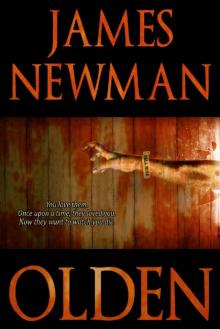 Olden
Olden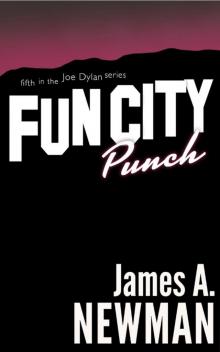 Fun City Punch (Joe Dylan Crime Noir, #5)
Fun City Punch (Joe Dylan Crime Noir, #5)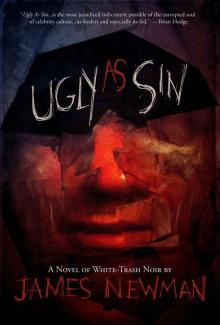 Ugly As Sin
Ugly As Sin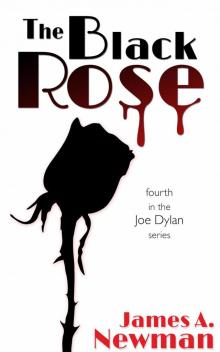 The Black Rose (Joe Dylan Crime Noir, #4)
The Black Rose (Joe Dylan Crime Noir, #4)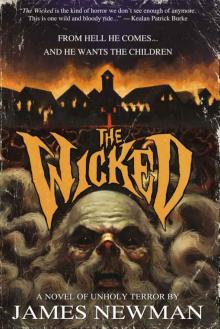 The Wicked
The Wicked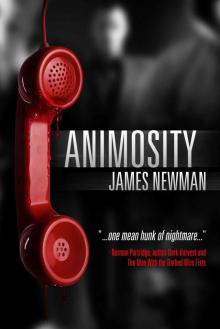 Animosity
Animosity Bangkok Express (Joe Dylan Crime Noir, #1)
Bangkok Express (Joe Dylan Crime Noir, #1)